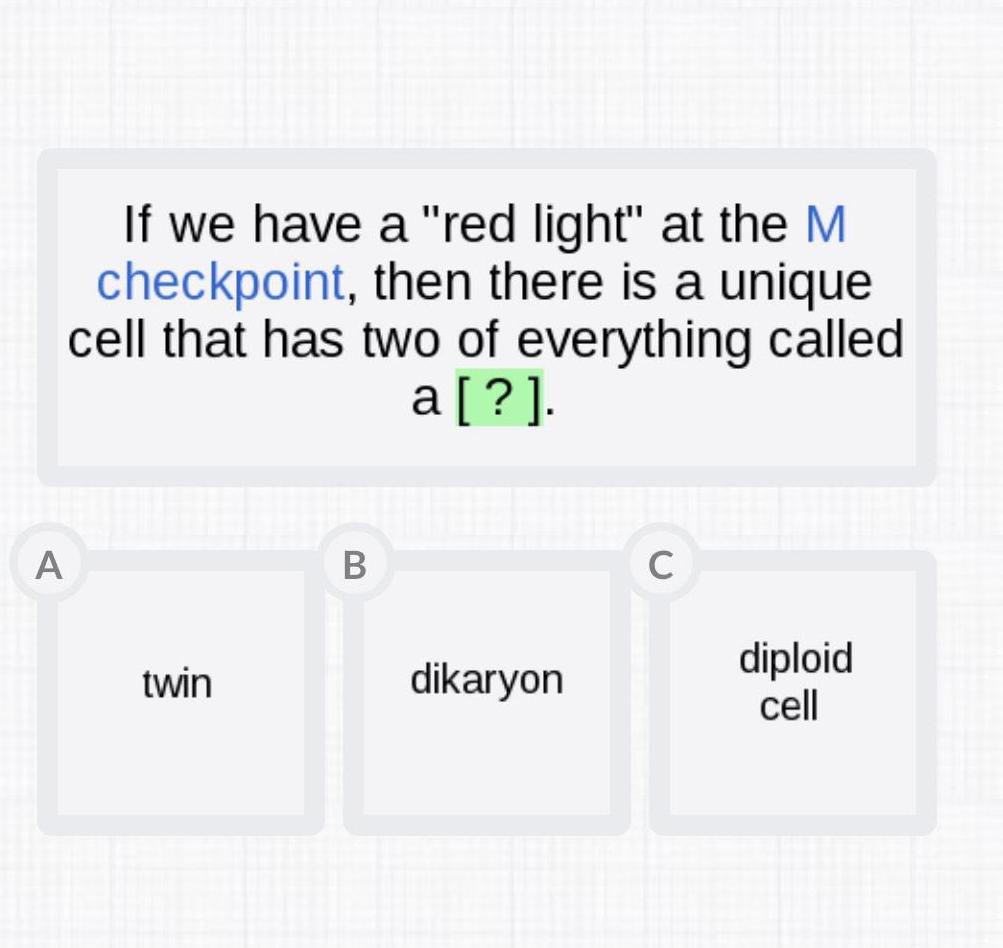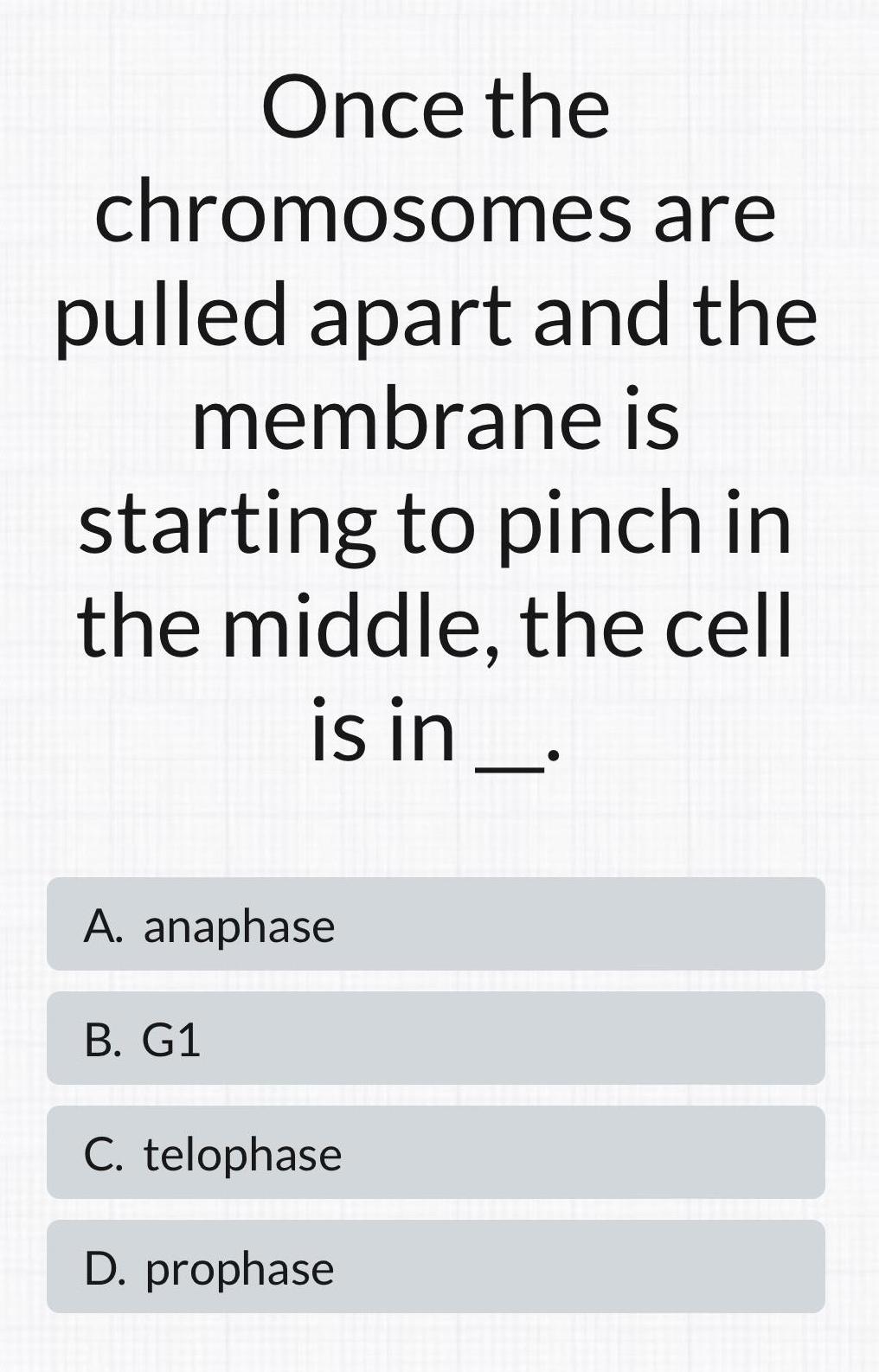Biology Questions
The best high school and college tutors are just a click away, 24×7! Pick a subject, ask a question, and get a detailed, handwritten solution personalized for you in minutes. We cover Math, Physics, Chemistry & Biology.

Biology
Biological Classification3 30 Heterosporous Seed producting Homosporous Flower producing Onon vascular

Biology
Principles of Inheritance & Variation (Genetics)Which of the following are NOT characteristics of the pea plant that make it an ideal subject for experimentation A short germination time B easy to manually pollinate C rare and exotic traits D easy to grow

Biology
Molecular Basis of InheritanceIn Mendel s pea plants the F1 generation was crossed to form an F2 generation with purple and white flowers in a A 1 1 ratio B 3 1 ratio C 1 0 ratio D 1 2 1 ratio

Biology
Human ReproductionA Gamete formation in males ends in a n split of viable cells even B uneven C 50 50 split

Biology
The Living WorldA The array of structures shown to the right are called diploid cells B asci C map units

Biology
Morphology of Flowering Plants5 1 point ach of the following is NOT one of the differences betwe presence of guard cells location of stomata Opattern of leaf venation presence of bundle sheath cells around vascular bundles

Biology
Cell Cycle and Cell DivisionOne method of gaining diversity during meiosis is in which portions of sister chromatids exchange portions of their genes A independent assortment B independent segregation C crossing over

Biology
EvolutionA Even with the mechanisms of variation preceding which unites the gametes and produces the zygote there are still 64 trillion possible combinations random fertilization B crossing over C indepen dent assort ment

Biology
Cell Cycle and Cell DivisionA forms during meosis in which there are four chromatids of each chromosome A tetrad B quatrad C haploid state D diploid state

Biology
Cell Cycle and Cell DivisionMeiosis essentially goes through twice to reach the haploid number A binary fission B meiosis C parthenogenesis D mitosis

Biology
EvolutionA is the raw material for natural selection therefore without nothing would evolve variation B weak individuals C clones

Biology
Human Health and DiseasesFigure 2 to the right contains benign tumors as you can see tissue starting to A overlap B Fig 1 Fig 3 separate into many tumors C Fig 2 stratify

Biology
Cell: The Unit of LifeFigure 2 to the right contains Fig 1 as you can see Fig 3 tissue starting to A malignant tumors B benign tumors C Fig 2 normal tissue

Biology
Human Health and DiseasesA One of the only options to treat a cancer that has metastasized is which attacks rapidly dividing cells chemo thorony B radiation C anti biotics

Biology
Cell Cycle and Cell DivisionIf we have a red light at the M checkpoint then there is a unique cell that has two of everything called a A twin B dikaryon C diploid cell

Biology
Cell Cycle and Cell DivisionA If we have a red light at the then there is a unique cell that has two of everything called a G checkpoint B G checkpoint C M checkpoint

Biology
Cell Cycle and Cell DivisionHow would you describe the frequency of the cell reproduction cycle of liver cells A Every 5 days B Every 120 days C Never D Only when threatened

Biology
Cell Cycle and Cell DivisionOnce the chromosomes are pulled apart and the membrane is starting to pinch in the middle the cell is in A anaphase B G1 C telophase D prophase

Biology
Cell Cycle and Cell DivisionDuring which phase of mitosis do the chromosomes line up single file at the equator of the cell A prophase B anaphase C telophase D metaphase

Biology
Cell Cycle and Cell DivisionA Structure 2 or structure 1 waistline of the chromosome structure 2 is called the centriole B centromere C chromatid

Biology
Cell Cycle and Cell DivisionWhich of the following is NOT part of the mitotic spindle A microtubules B asters C pores D centrosomes

Biology
Biological Classificationof A very rare form reproduction can be characterized by A haploid gametes joining to form diploid zygotes B an alternation of generations C part of an organism pinching off and becoming its own organism D a daughter cell pinching off and becoming its own mother cell

Biology
Biological ClassificationA Examples of local direct signaling in plant cells occurs through and in animal cells are involved channel proteins B gap junctions C plasmo desmata

Biology
Human Physiology - Chemical CoordinationIf your blood sugar drops and your liver releases glucose to raise blood sugar this is feedback A negative B positive C anabolic D inhibitory

Biology
Plant Physiology - PhotosynthesisOrganisms that photosynthesize perform cellular respiration A still need to B do not need to C are unable to D still use chloroplasts to

Biology
Plant Physiology - PhotosynthesisWhich of these is NOT a name for the final stage of photosynthesis A The Calvin Cycle B The light independent reaction C The carbon fixation cycle D Substrate level phosphorylation

Biology
Plant Physiology - PhotosynthesisThe type of photophosphorylation that offers the biggest energy pay off is non cyclic photo phosphory lation B cyclic photo phosphory lation substrate level photo phosphory lation

Biology
Plant Physiology - PhotosynthesisThe first photosystem in the thyalkoid membrane is called A photosystem II C p700 B photosystem I D numero uno

Biology
The Living WorldDiscrete units of electromagnetic radiation are known as atoms educers B light D photons

Biology
Plant Physiology - PhotosynthesisA Most of the cholorplasts are on the underside of the leaf otherwise and other environmental factors could affect them light pollution B wind H O

Biology
Ecology - Biodiversity & ConservationA plant is green because it green light A refracts C absorbs B reflects D transforms

Biology
Plant Physiology - PhotosynthesisWhich of the following is NOT a part of photosynthesis A Photolyses C Oxidative phosphorylation B Carbon fixation D Light reactions

Biology
Biotechnology: Principles and ProcessesThe greater color change in the bromothymol blue experiment when running showed an increased rate of production A glucose C oxygen B carbon dioxide D water

Biology
Biotechnology: Principles and ProcessesA The electron transport chain is a series of diffusion facilitating membrane proteins found in the membrane of the mitochondria outer surface of the finer

Biology
Plant Physiology - PhotosynthesisA The key result of the Citric Acid Cycle is load the shuttle buses NADH and FADH to carry to final stage of cellular respiration neutrons B electrons C protons

Biology
Human ReproductionThe key result of the Citric Acid Cycle is to load the shuttle buses NADH and to carry to final stage of cellular respiration B C

Biology
Biotechnology: Principles and ProcessesGlycolysis involves two phases investment and energy energy B first C

Biology
Biotechnology: Principles and ProcessesA Step 1 Step 2 C C C C C C After step 2 the next aerobic step is the citric acid cycle which will lead to the release of as waste C C C C C C 0 B H O C CO

Biology
Sexual Reproduction in Flowering PlantsA C C C C C C Step 2 C C C C C C After step 2 the next aerobic step is which will lead to the release of as waste Glycolysis B Alcoholic fermentation The Citric Acid Cycle


Biology
Human Health and DiseasesAn H ion is an atom that has been by an electron reduced B neutralized C oxidized

Biology
Biotechnology & its ApplicationsThe reaction cascade in glycolysis cannot continue without unloading hydrogen from which molecule A NADH B NAD C ATP

Biology
BiomoleculesWhat does glycolysis literally mean A To split glucose C To split a complex sugar B To split ATP D To form glucose

Biology
Plant Physiology - PhotosynthesisA 6CO2 6H O C6H12O6 602 Which molecule s in the reaction above is are processed in the chloroplast 6H O and CO2 B C6H12O6 and CO2 C C6H12O6 and O2

Biology
Sexual Reproduction in Flowering PlantsIf you double the time an enzyme has to react the amount of product will A increase more than double B be less with more time C not change significantly D double as well


Biology
Human Health and Diseaseswhat phylum do the organisms that made these tests belong Apicomplexa Dinoflagellata Bacillariophyta

Biology
Biotechnology: Principles and ProcessesReactions that require energy input are called endergonic and are A anabolic B catabolic C easily activated D hard to activate

Biology
Animal KingdomReactions that require energy input are called and are A exergonic B endergonic C spontaneous D catabolic

Biology
Biological ClassificationFor a protein to be denatured the bonds have to be disrupted A peptide B non polar covalent C hydrogen D metallic